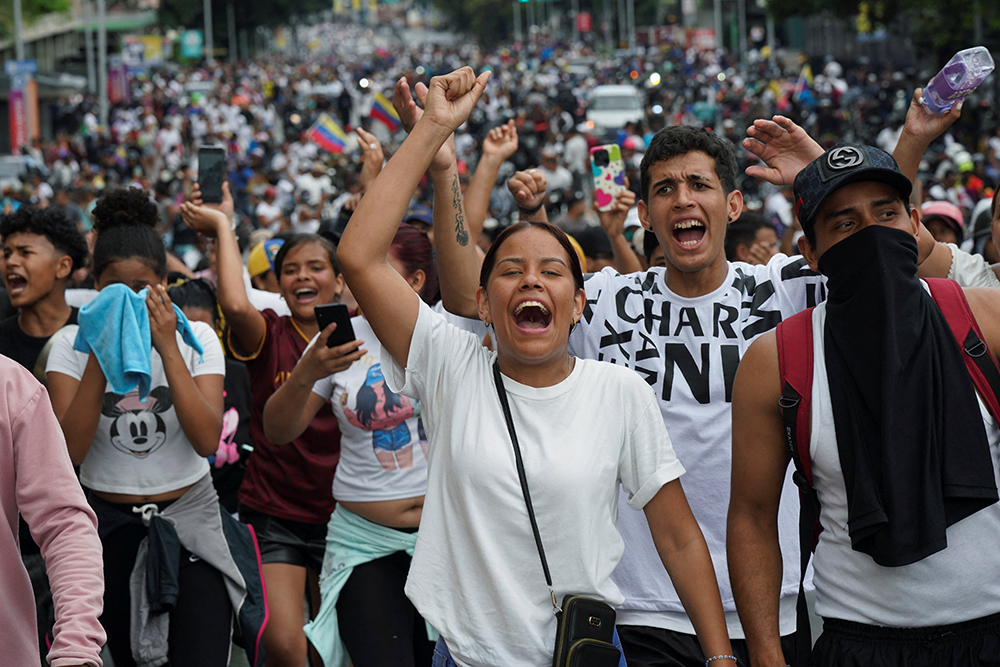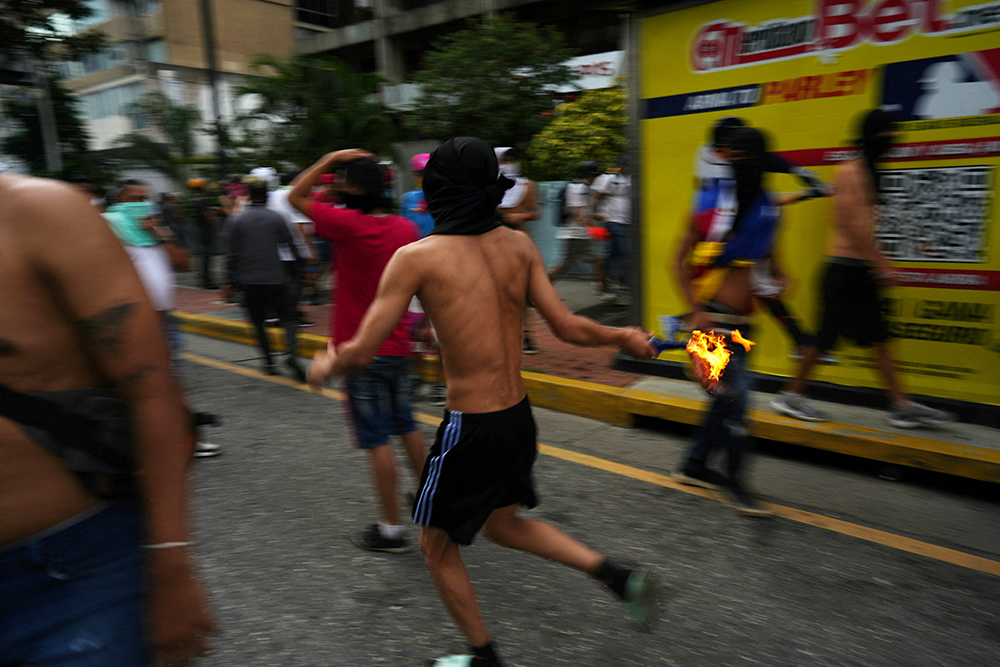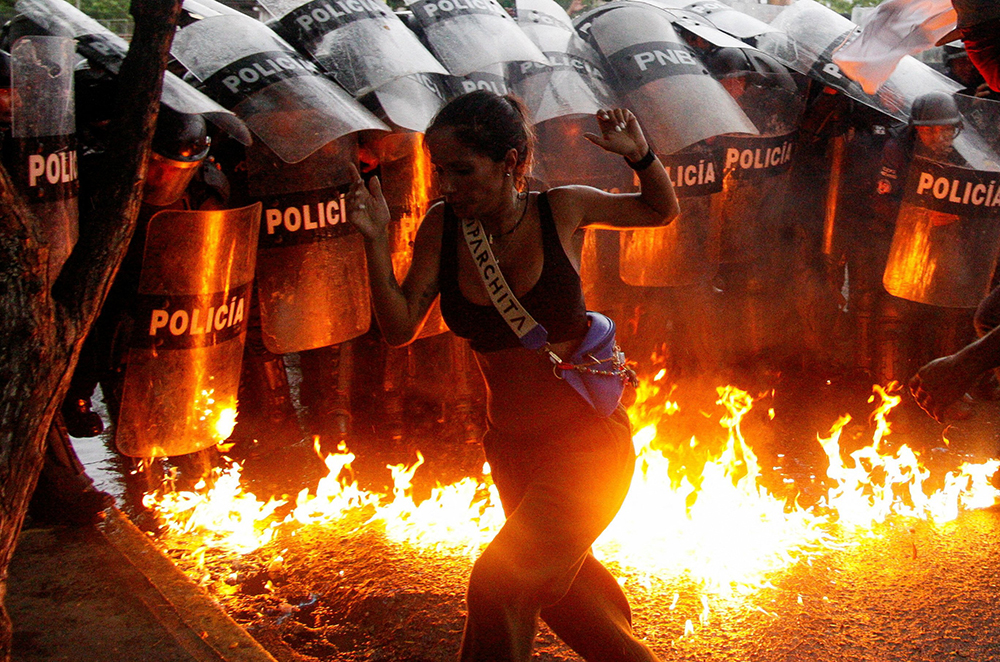
By Manuel Rueda
CARACAS, Venezuela (OSV News) — Bishops in Venezuela called July 30 for the results of the nation’s heavily disputed presidential election to be verified as protests break across the South American country over the official vote count — which gave President Nicolas Maduro a third consecutive term.
In a statement published on X, the Venezuelan bishops’ conference said that it was ready to “accompany” Venezuelans in these “times of concern.”
“Let us be hopeful and firm,” the statement reads. “We must carry out our just reclamations and reaffirm our positions with the peaceful attitudes of respect and tolerance that have prevailed up until now.”
Venezuela’s presidential election on July 28 pitted the socialist President Nicolás Maduro against Edmundo González, a retired diplomat who was picked as the opposition’s candidate after its leader María Corina Machado was banned from running in the election by judges loyal to Maduro.
The election was seen by many in Venezuela as the greatest challenge so far to the nation’s ruling party, which has been in power for 25 years but has become increasingly unpopular due to a serious economic crisis that has forced more than 7 million people to leave the country.
But on July 29, Venezuela’s elections agency, the National Electoral Council, said Maduro had won the election with 51% of the votes, while Gonzalez obtained 44%.
The elections agency did not provide a detailed breakdown of the result, which contrasted greatly from exit polls published on election day — giving González a 20- to 30-point lead over Maduro.

Venezuela’s opposition quickly rejected the result, describing it as fraudulent. Opposition leader Machado challenged the electoral agency to publish the tallies printed out by voting machines around Venezuela.
“Why the delay?” Machado said at a July 30 rally, attended by thousands of people dressed in white, who cheered her on as she spoke from the top of a truck. “What are they afraid of?” she asked.
In Venezuela voting is carried out on machines that print out receipts, which give a detailed account of how many votes each candidate got.
The opposition has said it has obtained receipts from 81% of the nation’s voting machines so far, thanks to its witnesses at voting centers. According to the opposition, 67% of all votes from these machines went to its candidate, with Maduro only getting 30% of the vote. The opposition has placed copies of the voting machine receipts on a website.
“This is the Venezuelan election with the largest margin of victory in history,” Machado said at a press conference the night of July 29.
Maduro meanwhile accused the opposition of trying to stage a coup against his electoral victory, with the help of Western governments.
“Venezuela is facing a national and international aggression, led by world powers,” Maduro said in a counter-protest July 30 that was held by government supporters in front of Venezuela’s presidential palace.
So far only a handful of countries have recognized Maduro’s victory, including China, Russia, Iran, Nicaragua and Cuba.
Brazil, Colombia and Chile have asked for the results to be verified, using the printouts from voting machines, while U.S. Secretary of State Anthony Blinken said he had “serious doubts” about the official vote count.

Meanwhile protests over the election result have broken out across Venezuela and have been dispersed violently by soldiers, police officers and gangs loyal to the Maduro government. According to Foro Penal, a Venezuelan human rights group, 11 people have been killed in protests that followed Sunday’s election, and more than 170 have been arrested.
Cardinal Baltazar Porras Cardozo, retired archbishop of Caracas, urged the government and the opposition July 30 to find a peaceful solution to the conflict and open channels of communication.
“If both sides turn their backs on each other, there is no space but for irrationality and violence” Cardinal Porras said, during a July 30 Mass in which he celebrated the 57th anniversary of his ordination as a priest.
“The truth should be the center of all of our actions, and not the systematic disqualification of those who do not think like us,” he said.
